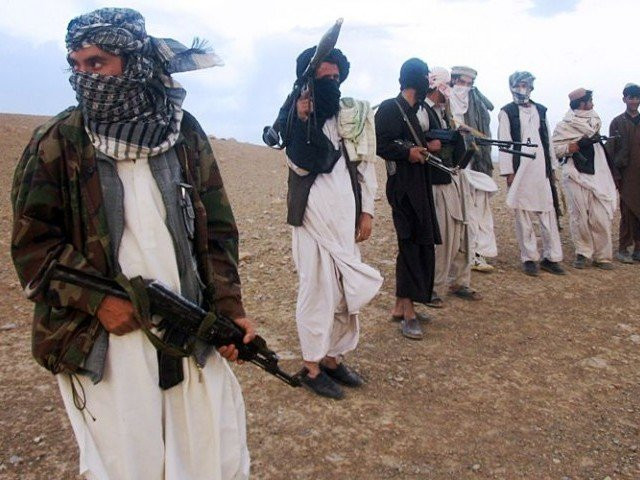Quadrilateral group ready to convince Taliban
Sources say four nations hope to finalise roadmap in a meeting today

A file photo of the Afghan Taliban. PHOTO: AFP
Two sources, who were part of the two quadrilateral meetings in Islamabad and Kabul, said the Kabul meeting had partially discussed the roadmap. They remained hopeful that the February 6 sitting may make substantial progress, and believed the roadmap will be finalised by Saturday’s meeting in Islamabad.
The most important aspect of the plan would specify “policy parameters for shared responsibilities” of all the countries involved in the process. Pakistan had repeatedly insisted that peace in Afghanistan should be a shared responsibility, as Kabul had, in the past, completely shifted the onus on Islamabad to bring the Taliban to the negotiation table.
This approach was illogical and did not work, but now there are high hopes with the active involvement of the US and China.
The four-nation mechanism is seen as key, as regional and global powers as well as stakeholders are now part of it. However, the process could face challenges, and the biggest threat could be those looking to scuttle the efforts in Afghanistan and abroad. All those involved in the mechanism must be weary.
It is believed that the quadrilateral process has a positive impact on bilateral relations between Pakistan and Afghanistan, especially with the recent interaction between the military and intelligence officials.
“The Quadrilateral Coordination Group had proposed that there should be increased interaction between Pakistani and Afghan military and intelligence officials. The atmosphere for this is improving, and we see good signs,” a participant at the two meetings told The Express Tribune in an in-person discussion.
He also said participants are against any preconditions ahead of the talks, but want confidence building measures (CBMs) to convince the Taliban to soften their stance on political negotiations. They seemed upbeat over the approach of the militant group at an unofficial meeting in Qatar in which Taliban representatives did not reject the political process.
However, they asked for CBMs, which included the recognition of their political office, lifting of an international travel ban on their leaders and the release of prisoners.
Another positive sign at the conference in Qatar was President Ashraf Ghani’s approach to calling the Taliban his ‘political opponents’, and was even seen as a welcoming gesture by the militant group.
An insider familiar with the four-nation process said delegates disagreed with Kabul’s repeated calls for action against in what was publicised as the “irreconcilable Taliban”.
“We have asked the Afghan side to identify the irreconcilable Taliban first; but they had not mentioned anyone in the previous meetings.”
Sources said the first priority was to encourage the Taliban to join the reconciliation process, but advised the Afghan side to be realistic in its approach. There are also fears among Afghan leaders of the possible increase in Taliban violence if the group launches its annual spring offensive.
As the four-nation process continues without any hindrance, there are some encouraging signs about possible peace initiatives. Afghan officials said President Ashraf Ghani is mulling whether to appoint a new chief for the High Peace Council (HPC) mandated for talks with armed opponents. The HPC has been without a head since January 2015, after Salahuddin Rabbani was appointed the country’s foreign minister.
Ismail Qasimyar, a senior official of the HPC, was quoted as saying in Kabul on Friday that President Ghani will appoint a new chief next week. He said the president had been involved in discussions on the issue over the last few months and now made up his mind to take the final decision. Some sources added that the president is leaning towards appointing Pir Sayed Ahmad Gilani, a former jihadi leader.
There are also reports that the position could go to Masoom Stanekzai, the acting defence minister who was previously involved in some sort of interaction with the Taliban. Although there has been some criticism of the HPC’s role in the peace process, the appointment of a new chief may enable it to assist peace efforts.
Published in The Express Tribune, February 6th, 2016.



















COMMENTS
Comments are moderated and generally will be posted if they are on-topic and not abusive.
For more information, please see our Comments FAQ